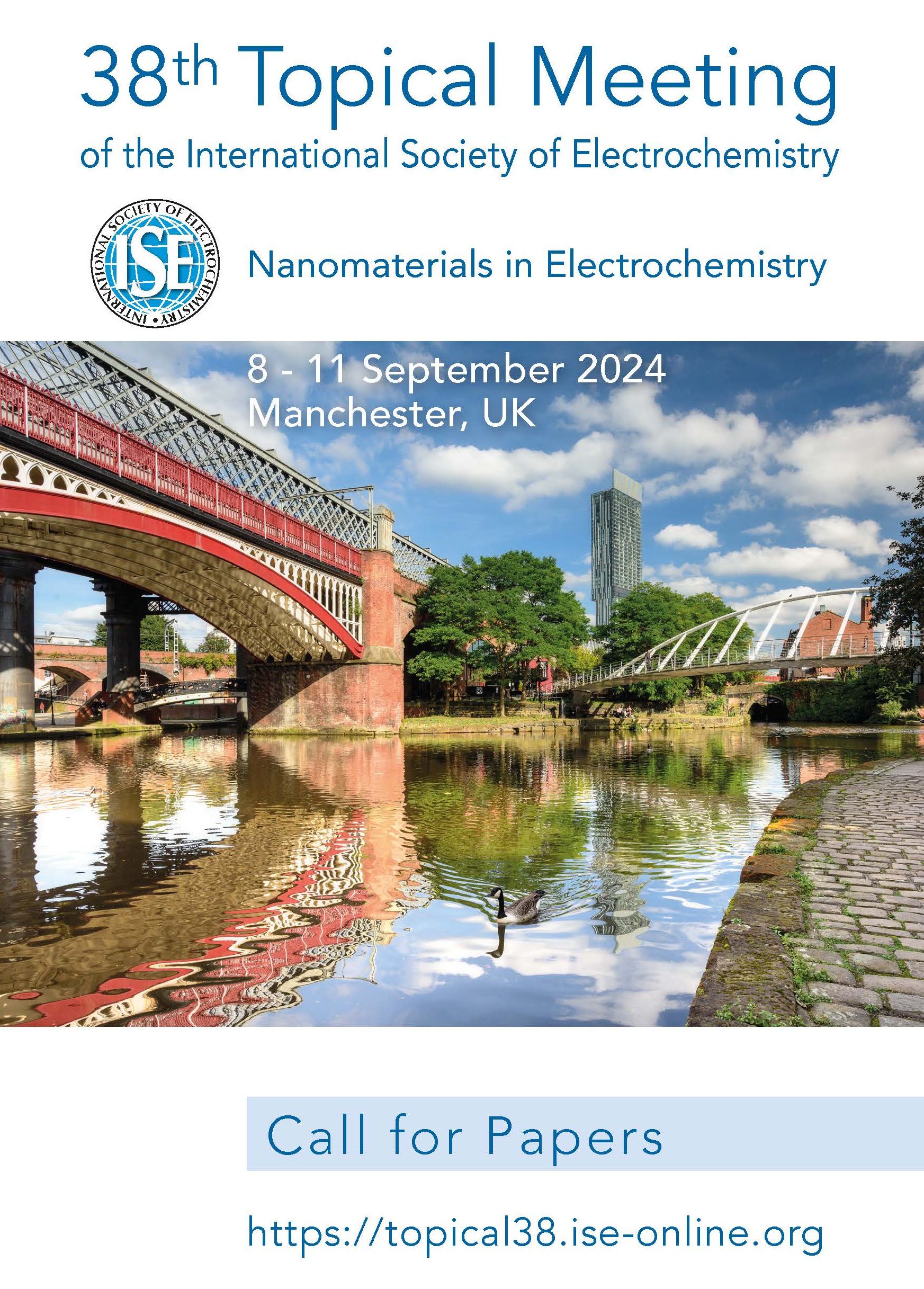Scientific Program
The main theme will be the use in electrochemistry of materials with features on
the nano-scale, including (but not restricted to) nanoparticles, layered materials,
2D-materials and nano-structured surfaces. Both fundamental and applied topics will
be covered, so applications of nanomaterials in electrocatalysis, battery materials,
supercapacitors and electrochemial sensing are warmly encouraged.
The theme fits well with the University of Manchester’s role in the development of
graphene (2010 Nobel Prize in Physics) and other 2D materials and should appeal to a
wide cross-section of the electrochemical and energy storage community.
Registration will be from 15:00 on Sunday (8th Sept), there will be an opening ceremony, followed by a Reception from 17:00. We may have a Keynote lecture on the Sunday also.
The remaining Scientific programme will start at 9:00 on Monday (Sept 9) and finish by 13:00 on Wednesday (Sept 11).
Nanomaterials for Energy Storage: topics will cover the use of nanoparticles, including 2D materials and nanowires, in batteries (of all types) and supercapacitors – both as active materials and conducting additives.
Nanomaterials for Electrocatalysis: nanoparticles and other nano-architectures for electrocatalytic processes, including water electrolysis/fuel cells, carbon dioxide reduction and other topical reactions such as electrochemical ammonia production.
Nanomaterials for Analysis & Environmental Protection: the role of nanoparticles in optimising and understanding electrochemical sensor performance; application of nanoparticles for “real-life” measurements, e.g. in water purification and monitoring and biosensing.
The Electrochemical Interface at the Nanoscale: fundamental experimental and/or computational studies of electrode/electrolyte interfaces at nanometre resolution – both normal and lateral to electrode surfaces. Relevant techniques include in situ synchrotron and neutron scattering methods, and theoretical studies on atomistic/molecular length scales.
KEYNOTE SPEAKERS:
Clare Grey (Cambridge University, UK)
Patrice Simon (Université Paul Sabatier, Toulouse, France)
Radha Boya (University of Manchester, UK)
Kristina Tschulik (Bochum University, Germany)
INVITED SPEAKERS (confirmed so far):
Kathryn Toghill (Lancaster University, UK)
Nuria Garcia-Araez (Southampton University UK)
Nuria Lopez (Imperial College London UK)
Wataru Sugimoto (Shinshu University, Japan)
Damian Kowalski (Warsaw University, Poland)
Volker Presser (Leibniz Institute, Saarbrücken, Germany)
Francesca Soavi (University of Bologna, Italy)
Karsten Reuter (FHI, Berlin Germany)
Dusan Strmnick (National Institute of Chemistry, Slovenia)
Mohammed Mamlouk (University of Newcastle, UK)
Susana I.C. de Torresi, (USP, Brazil)
Stefania Specchia (Politecnico di Torino, Italy)
Christopher Hardacre (University of Manchester, UK)
Jasna Jankovic (U. Connecticut, USA)
Anthony O’Mullane (Queensland University of Technology, Australia)
Grégoire Herzog (Université de Lorraine, France)
Luiz-Henrique Dall’Antonia (Universidade Estadual de Londrina, Brazil)
Eithne Dempsey (Maynooth University, Ireland)
Frank Marken (University of Bath, UK)
Jeffrey Dick (Chemistry, Purdue University, USA)
Jun Cheng (Xiamen University, China)
Marc Koper (Leiden University, Netherlands)
Michael Eikerling (Jülich, Germany)
Mira Todorova(MPIE, Germany)
Takuya Masuda (NIMS, Japan)
Yvonne Gründer (Liverpool University, UK)
